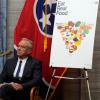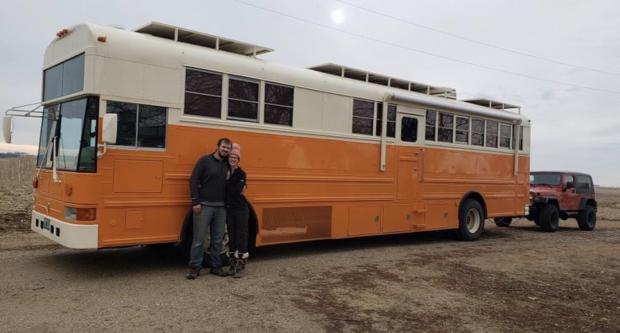
Breaking News
 Pam Bondi says that if we prosecute everybody in the Epstein Files, the whole system will collapse
Pam Bondi says that if we prosecute everybody in the Epstein Files, the whole system will collapse
 Dr Pollan at Harvard has cured schizophrenia using keto diet
Dr Pollan at Harvard has cured schizophrenia using keto diet
 We are winning. Big Pharma is finding it too difficult to get new vaccines approved under Trump
We are winning. Big Pharma is finding it too difficult to get new vaccines approved under Trump
 Abortion drugs discovered in Bill Gates' vaccines
Abortion drugs discovered in Bill Gates' vaccines
Top Tech News
 Drone-launching underwater drone hitches a ride on ship and sub hulls
Drone-launching underwater drone hitches a ride on ship and sub hulls
 Humanoid Robots Get "Brains" As Dual-Use Fears Mount
Humanoid Robots Get "Brains" As Dual-Use Fears Mount
 SpaceX Authorized to Increase High Speed Internet Download Speeds 5X Through 2026
SpaceX Authorized to Increase High Speed Internet Download Speeds 5X Through 2026
 Space AI is the Key to the Technological Singularity
Space AI is the Key to the Technological Singularity
 Velocitor X-1 eVTOL could be beating the traffic in just a year
Velocitor X-1 eVTOL could be beating the traffic in just a year
 Starlink smasher? China claims world's best high-powered microwave weapon
Starlink smasher? China claims world's best high-powered microwave weapon
 Wood scraps turn 'useless' desert sand into concrete
Wood scraps turn 'useless' desert sand into concrete
 Let's Do a Detailed Review of Zorin -- Is This Good for Ex-Windows Users?
Let's Do a Detailed Review of Zorin -- Is This Good for Ex-Windows Users?
 The World's First Sodium-Ion Battery EV Is A Winter Range Monster
The World's First Sodium-Ion Battery EV Is A Winter Range Monster
 China's CATL 5C Battery Breakthrough will Make Most Combustion Engine Vehicles OBSOLETE
China's CATL 5C Battery Breakthrough will Make Most Combustion Engine Vehicles OBSOLETE
Couple Converts 40-Foot School Bus into Gorgeous Home for Working and Travel–LOOK INSIDE

Josh and Emily Scherrer are married in their late 20s. They both work as engineers, and it happened that in 2020 they transitioned entirely to remote work.
Originally bonding over their love of travel and shared ambition to do more of it, they took the plunge and bought a school bus in January 2021 with the intention of turning it into a mobile home. School buses are cheaper than actual mobile homes, and provided more space for the couple who each needed their own office.
Working on the weekends and evenings, it took 18 months to transform the old bus into their "skoolie"—a modern term rapidly infiltrating the American zeitgeist that refers to a school bus that's been renovated into something new, like this fellow who turned it into a hostel, or this fellow who turned it into an Airbnb.
Now called "Aurora the Adventure Bus" on Instagram the skoolie is equipped with maple wood ceilings, shower, full-service kitchen, solar panels, and satellite internet. The conversion ended up costing $80,000, which the Scherrers admitted to Business Insider is well on the higher end for typical skoolie conversions.
"We don't have to pay for plane tickets or hotels, so we can experience more for our money," Emily Scherrer told BI. "Our expenses depend on where we park and the amenities we find."
The southwestern US has a lot of land available for public use… we like to use that kind of land versus going to campgrounds, which saves us a lot of money," she said.



